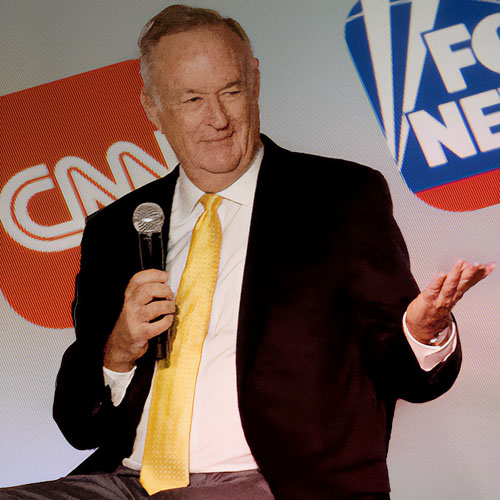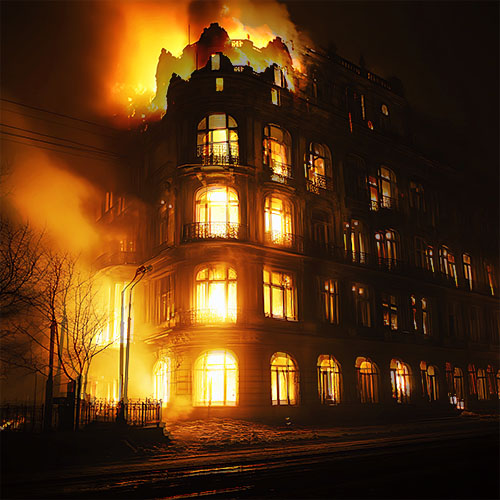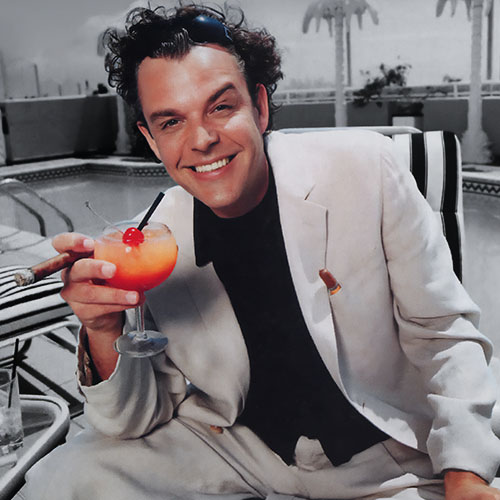In the wake of Arnold Schwarzenegger’s anointment as the world’s biggest movie star —we’re talking box office, not just biceps — Hollywood studios have been engaged in a mad scramble to discover the next hunk of bankable beef-cake.
Van Damme The Torpedoes — Full Speed, Ahead!
Let’s talk Jean-Claude Van Damme in relation to regular “stars” for a brief moment.
Take a number and stand in line: Even marginal athletes like wrestlers Hulk Hogan and Rowdy Roddy Piper and ex-football player Brian Bosworth have been given shots at becoming macho marquee idols.
Aside from Schwarzenegger, the current kings of action-adventure films — including Chuck Norris and newcomer Jeff Speakman — exhibit what now appear to be the two requirements of the genre: a knowledge of the martial arts and absolutely no acting talent. As Schwarzenegger has shown, charisma alone can suffice, and he’s got plenty to spare. So does a Belgian named Jean-Claude Van Damme, who appears poised to jump ahead of them all in the race to out-muscle Arnold.
A former European karate champ, Van Damme spent the last six years starring in a string of cheapo martial arts movies that made buckets of money. In 1991 he played a pair of combative twins in Double Impact, which quietly grossed $35 million in the United States and will probably rake in an additional $50 million world-wide. Throw in some astonishing videocassette sales, and it’s easy to see why Carolee Pictures is confident that its $23 million production of Universal Soldier — which stars Van Damme as a half-robot half-human — will end up as one of this summer’s biggest hits.
To borrow a line from a well-known Austrian body-builder, trust me now and believe me later: Van Damme is about to become a major star. Like Schwarzenegger, he has a sculpted body, a strong screen presence, a sly sense of humor, and a pronounced accent (his is French). The one edge he has on Arnold is his age. At 31 , Van Damme is 14 years younger and much further along in his film career than Schwarzenegger was at the same point.
“I don’t know if I’ll ever be as popular as he is, but being compared to the No. 1 guy is a compliment to me,” Van Damme says. “Arnold’s charming, not afraid to make fun of himself, a strong promoter, and very, very intelligent — that’s why he’s so successful.”
The same can be said of Van Damme, who has tirelessly plugged his films all over the world, thereby building up an international following. He’s very bright about publicizing himself. These days it’s difficult to find an article or TV report about him that doesn’t refer to “the Muscles From Brussels” or “Van Dammage.”
“I made up both of those nicknames, and they seem to have worked. I also made up another one that didn’t: ‘Wham, bam, thank you, Van Damme,’” he laughs.
Van Damme is smooth as opposed to slick, and women have definitely taken notice of him: Cosmopolitan and Playgirl both rated him one of the ten sexiest men of 1991. It’s easy to understand why. He’s ruggedly handsome in a boyish way, and has a gentle sense of humor. On-screen he looks like a giant, but he’s barely five foot ten, weighs 185 pounds, wears glasses, and conducts himself like a cheery college professor. He’s thoroughly approachable, and vows to remain so.
“The first movie I ever did was a film called Rue Barbar that was shot in Paris — I played a bad guy,” he says. “Movie stars are more accessible in France. They work on the streets, and during breaks they’ll go off for coffee with a friend. They lead normal lives, and I like that. The French are cooler about making movies than the Americans. Here it’s like everything’s done in hiding; it’s very plastic.”
Unlike most of his action-oriented colleagues, Van Damme was always more interested in becoming a movie star than a star athlete. He recalls being a small, sickly child with bad vision who spent an inordinate amount of time going to the movies. “What I remember most is that we were poor,” he says. “Brussels is a beautiful city filled with museums, but it’s not like any town in the U.S., where kids have computer games and TV. We had nothing. We had the street, the school, and sports.”
When Van Damme was 11, his father — a florist and accountant — enrolled him in a karate class in hopes of giving his son some self-confidence. The plan worked. “I enjoyed the training a lot — it was like a religion for me,” Van Damme says. “My country didn’t have karate for kids, so I trained with adults. I grew up quickly by listening to their conversations and by sparring with them. They kicked my ass almost every day — I was very light — but after a few years of training hard and growing, I got very strong and started to hold my own.”
By the time he was 16, Van Damme had shot up and was no longer a Brussels sprout. He was also the city’s karate king. At that point, he began studying ballet. After a couple of years, Van Damme began performing with a ballet company.
“I’m not saying this because I have a swelled head, but I was a very gifted dancer,” he reports. “They called me le ballon — the balloon — because I was able to jump six feet in the air, which is exceptional. But I also liked muscles, and my arms and torso became too big. Most dancers have a small upper body and very strong legs. I kept my body balanced 50-50, and it was unusual to see a guy built like me dancing ballet. After five years, I finally gave it up: You just can’t drive two cars at the same time. I stayed with karate because it had been part of my life since I was a boy, and by then I’d become the European karate champion. But it was never going to be my life. I wanted to be in the movies, and karate was the skill I used to introduce myself to different countries.”
Van Damme fought all over Europe, and claims that the only match he ever lost was when he was 18 and was defeated by a 28- year-old Italian in the finals of the European champion- ships. “That was one of my biggest disappointments, because I had held back. I believed my instructor, who told me the guy was too big for me and that it was impossible for me to win,” he says. “Almost a year later, I saw the champion training one day. He said, ‘Kid, take off your glasses and let’s do some sparring.’ When we started, I blocked a punch of his and kicked him right in the face. I was lucky, but after I lost to him, I’d been training for six hours a day, and I’d become a monster.”
By then Van Damme had quit school and opened the California Gym on the busiest street in Brussels. It quickly became the city’s trendiest health club. With his own line of vitamins — and his father’s help — he was soon overseeing a million-dollar-a-year business.
But he wasn’t happy: He longed to become an actor. Once a week he went to Paris to look for movie work, which led to his role in Rue Barbar. He also sent letters and photos to every studio and director in America.
“That didn’t do me any good,” Van Damme remembers. “I was innocent; I didn’t know how to approach this thing. I tried everything. I opened my gym when I was 18, and after three years of it, I began wondering, ‘What am I doing here?’ I was making money, but since the age of 12, I’d been living a fantasy about becoming a movie star. My feeling was that life is short, so what did I have to lose by coming to Hollywood? My parents thought I was crazy. They said, ‘It’s impossible, Jean-Claude. How can you go to America, where they have millions of actors, when you don’t even speak English? Go back to school and become a gymnastics teacher.’ They couldn’t talk me out of it. In 1981, before I was 21, I sold my gym and vitamin business — I was too impatient to wait for the right price — and then I flew to California.”
Van Damme was dazzled by Hollywood — and by Southern California’s weather. The rest of it wasn’t sunny at all. “When I first got here, many people made big promises to me, and they were all lying,” he says. “After a .few months, I realized that the people I met — I wasn’t dealing with executives of major studios — were deceitful, and that I’d have to play the game their way or else end up looking like an asshole. In Hollywood you have to learn to act like a shark, or you’ll just be another fish that gets swallowed up.”
Van Damme supported himself as a film extra, bodyguard, bouncer, cab and limousine driver, carpet layer, and personal trainer. In 1986 he finally landed a speaking part — as a Russian villain — in No Retreat, No Surrender. “Good fights, stupid movie,” he says. “It was shot in Los Angeles in five weeks, and I was paid $250 a day for five days.”
Immediately afterward Van Damme was hired to play the title role in a Schwarzenegger film, which didn’t mean much: Van Damme was cast as the predator in Predator. He was suited up in an outfit that was far too big for him — his head only made it up to the creature’s chin — and was flown down to Mexico, where the film was shot. “It was a nightmare,” he says. “It was impossible to move inside that suit, so I had to drop out. After I left, they went with a different costume and a guy who was much taller than me.”
At that point Van Damme had learned to speak English, but he still didn’t have a green card, which meaot he couldn’t legally work in the States. But that didn’t deter him. Now that he’d had a taste of filmmaking, he went at it with a vengeance.
One night at a restaurant in Beverly Hills, he spotted Cannon Pictures’ Menahem Golan, whom he’d met briefly years before at film festivals in Cannes and Milan. Golan had just signed Sylvester Stallone to star in Over the Top, Dolph Lundgren (who costars in Universal Soldier) for Masters of the Universe, and had recently produced Missing in Action with Chuck Norris.
As Golan left the restaurant, Van Damme ran up to him. “I said, ‘Menahem, it’s Jean-Claude Van Damme. Remember? I gave you my photos in Cannes and Milan.’ He had no idea who I was,” Van Damme reports. “I wanted to impress him, so I did one of my 360-degree leaping kicks at his face — and above his head. Menahem’s my height, and he was shocked, maybe even afraid. He probably thought, Who the fuck is this guy? Anyway, he said ‘Call me tomorrow’ and walked away.”
The next morning Van Damme camped out in the offices of Cannon Pictures and waited more than five hours to speak to Golan. When he was shown in to see the producer, he was blunt. “Look, let’s cut the bullshit,” he said. “I’ve been here for five years and I’m fucked — I’ve got no money. I think I’m gonna be the best, and I’m very hungry. You can buy me with a piece of bread.”
Van Damme removed his shirt to show off his muscles, then pulled two heavy chairs a few feet apart. He jumped up and did a split between them and, with one foot hanging over each chair, continued to sell himself.
“I’m not a Shakespearean actor, but you don’t do Shakespearean movies,” he told Golan assuredly. “You believe in action films, and I’m trying to show you I’m an action guy who can do special things with my body. I can do anything I want, and I’m gonna make you so much money.”
When Van Damme sat down again, Golan instructed his secretary to bring in the script for Bloodsport. Golan said, “You want to be a star? I’ll make you a star. You’re gonna be the lead in this movie. You have a lawyer and an agent?”
“No,” said Van Damme, “but I will tomorrow.” Golan signed him to a three-picture deal, and Van Damme was lucky: Bloodsport was filmed in Hong Kong, so he didn’t need a green card. (He’s since gotten one.) He earned $50,000 playing an American soldier who competes in the Kumite, an outlawed martial arts competition in Hong Kong. The actor says that Bloodsport cost less than $1.5 million to produce, and it went on to earn $35 million in theaters, plus an additional $12 million in videocassette revenues.
Hollywood’s collective ears perk up when figures like that are reported. Van Damme completed his Cannon contract by starring in Cyborg and Death Warrant, and then continued with low-rent movies in Black Eagle, Kickboxer, and Lionheart.
“The best of those films cost less than $3 million to produce, and all of them were profitable,” he says. “Afterwards, I knew I could look every studio executive and producer I’d dealt with in the eye and say, ‘You’ve made lots of money with me.’”
By now so has Van Damme. He received $600,000 for Double Impact, $1.5 million for Universal Soldier, and will be paid $3.5 million for his next film, Crossing the Line. A good chunk of his earnings have been invested in real estate: He and his wife, Gladys Portugues (a former world-class body-builder), and their children, Kristopher, five, and Bianca, one, live on a $2 million spread located about 45 minutes north of Hollywood.
Moviegoers around the world now know that Van Damme can stage acrobatic film fights. The remaining question is whether or not he can act. “Truthfully, all the movies I’ve made have felt like acting, because when you fight karate and you don’t get hurt, you’re faking the pain, you’re faking everything,” he says. “But I know I have to make huge improvements in every other area, and I think I already have. In terms of acting, Double Impact was a small step above my other pictures, and I’ve taken more small steps — including comedy — in Universal Soldier. It’s unrealistic to think you can go from A to Z in one jump. These last two films have certainly gotten me beyond straight karate, and I’ll be taking more steps in every movie I do.”
Van Damme hopes to eventually star in epic adventures (he’s a great admirer of classics like Ben-Hur and Spartacus) and love stories. “But I’d never do a love story that doesn’t have action — why disappoint my audience? Why change?” he asks. “I think that’s what’s happened to Sylvester Stallone. Stallone’s a good actor — anyone who’s made movies like Rocky and the first Rambo has to be good — but now he’s changing, and I don’t know what he’s doing. I sense that he’s confused and looking for something different. He should follow his own instincts and not listen to other people.”
Not too many years from now, Van Damme thinks he’ll be polished enough to play lead roles in films like Bugsy. “I know it’s difficult when a guy like me, coming from karate, says that, but I’m gonna be there for sure,” he promises. “I love challenges. If you don’t have any and can do whatever you want, then it’s probably time to die.”
Van Damme hasn’t modeled himself after anyone, including his favorite actors — Paul Newman, Steve McQueen, and Montgomery Clift. He knows that at the moment he’s a hot property, but also realizes that doesn’t count for much. “You never know what’s going to happen,” he says. “We may have a war in two days, or I may go down in a plane crash next week. Right now I know what kind of roles I want to play, and I’m booked for the next five years. By then I think I’ll be very big in movies, but if I’m wrong and I’m finished in five years, I know exactly what I’ll do: I’ll go back to Belgium and open up another gym — and I’ll do it without regrets.”
For anyone of a certain age, Jean-Claude Van Damme holds a certain place of happiness. He had a way of appearing “macho” in his movies without seeming like he was on a contstant testostereone overdose. If that makes no sense to you, then we suggest spending a little time checking out his titles on your favorite streaming site. We linked to Amazon, but Netflix and even Hulu could have a smattering. Dude has made a lot of movies. … Since we started by talking comparisons, we can even let you wander about earlier Penthouse Legacy for a bit with Schwarzenegger and Chuck Norris. More Josh Hawley kind of “manly” maybe, but still scary.























